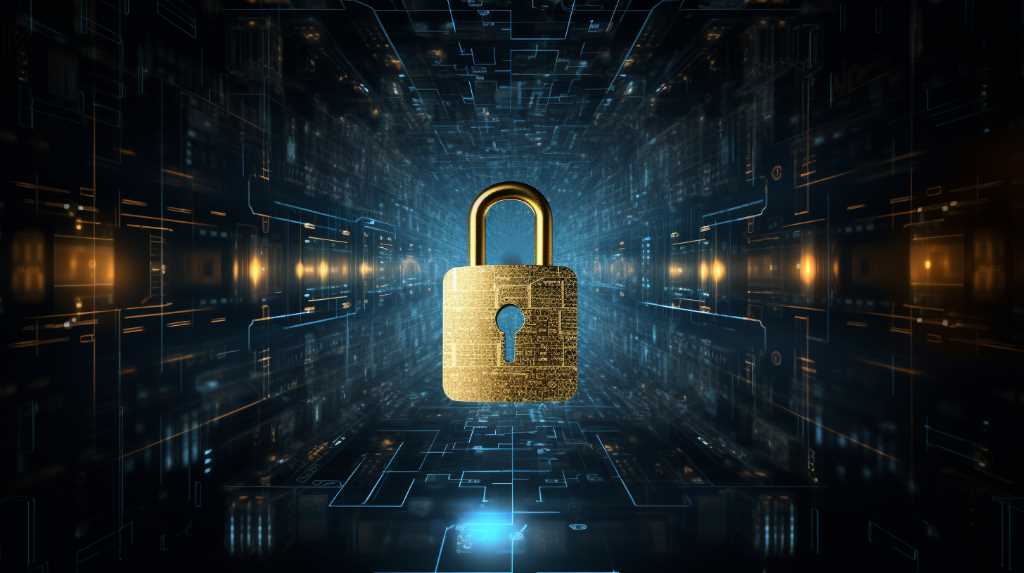Are you concerned about your online privacy? Do you want to secure your sensitive information from prying eyes? Look no further! In this article, we'll dive into the world of encryption tools and techniques that will help you protect your digital privacy. From understanding the basics of encryption to exploring the best practices and tools for file protection, we've got you covered. Get ready to take control of your online security and keep your data safe.
 To fully grasp encryption basics, you need to understand how encryption works and why it's important in safeguarding your data. Encryption is the process of converting information into a code or cipher, making it unreadable to anyone who doesn't have the decryption key. When you encrypt your data, it becomes secure and protected from unauthorized access.
Encryption works by using complex mathematical algorithms to scramble your data. The encrypted data is then stored or transmitted, and can only be decrypted by someone who's the correct key to unlock it. This ensures that even if your encrypted data is intercepted or stolen, it can't be understood or accessed without the encryption key.
Encryption is important because it helps protect your sensitive information from being accessed by unauthorized individuals. In today's digital world, where data breaches and cyber attacks are becoming increasingly common, encryption is crucial to safeguard your personal and financial information. By encrypting your data, you're adding an extra layer of security, making it much more difficult for hackers or malicious individuals to gain access to your sensitive data.
Understanding encryption basics is the first step towards protecting your data and maintaining your privacy. By implementing encryption tools and techniques, you can ensure that your information remains confidential and secure.
To fully grasp encryption basics, you need to understand how encryption works and why it's important in safeguarding your data. Encryption is the process of converting information into a code or cipher, making it unreadable to anyone who doesn't have the decryption key. When you encrypt your data, it becomes secure and protected from unauthorized access.
Encryption works by using complex mathematical algorithms to scramble your data. The encrypted data is then stored or transmitted, and can only be decrypted by someone who's the correct key to unlock it. This ensures that even if your encrypted data is intercepted or stolen, it can't be understood or accessed without the encryption key.
Encryption is important because it helps protect your sensitive information from being accessed by unauthorized individuals. In today's digital world, where data breaches and cyber attacks are becoming increasingly common, encryption is crucial to safeguard your personal and financial information. By encrypting your data, you're adding an extra layer of security, making it much more difficult for hackers or malicious individuals to gain access to your sensitive data.
Understanding encryption basics is the first step towards protecting your data and maintaining your privacy. By implementing encryption tools and techniques, you can ensure that your information remains confidential and secure.
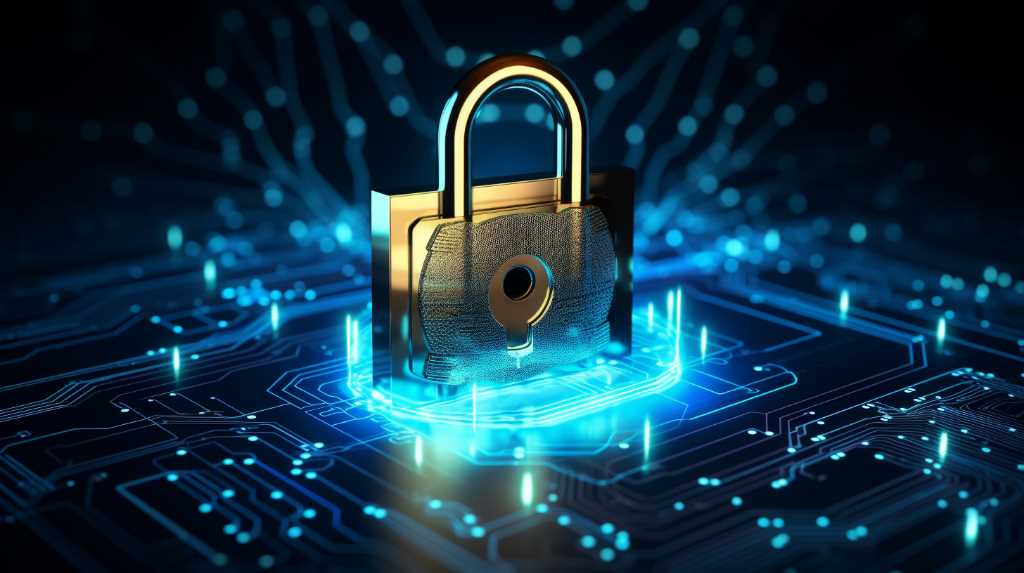 By using encryption techniques, you can significantly enhance your online privacy and protect your sensitive information from unauthorized access. In today's digital age, where cyber threats are becoming increasingly sophisticated, it's crucial to prioritize the security of your personal data. Encryption plays a vital role in safeguarding your information from prying eyes.
When you transmit data over the internet, it can potentially be intercepted by hackers or malicious entities. Encryption works by scrambling your data into an unreadable format, making it virtually impossible for anyone without the decryption key to decipher the information. This ensures that even if your data is intercepted, it remains secure and inaccessible to unauthorized individuals.
One of the primary benefits of encryption for online privacy is that it provides end-to-end protection. This means that your data remains encrypted throughout its entire journey, from your device to the intended recipient. It prevents any intermediaries, such as internet service providers or network administrators, from accessing or tampering with your data.
Encryption also helps protect your online communication and transactions. It ensures that sensitive information, such as passwords, credit card details, and personal messages, remain confidential. Without encryption, this information would be vulnerable to interception and misuse.
By using encryption techniques, you can significantly enhance your online privacy and protect your sensitive information from unauthorized access. In today's digital age, where cyber threats are becoming increasingly sophisticated, it's crucial to prioritize the security of your personal data. Encryption plays a vital role in safeguarding your information from prying eyes.
When you transmit data over the internet, it can potentially be intercepted by hackers or malicious entities. Encryption works by scrambling your data into an unreadable format, making it virtually impossible for anyone without the decryption key to decipher the information. This ensures that even if your data is intercepted, it remains secure and inaccessible to unauthorized individuals.
One of the primary benefits of encryption for online privacy is that it provides end-to-end protection. This means that your data remains encrypted throughout its entire journey, from your device to the intended recipient. It prevents any intermediaries, such as internet service providers or network administrators, from accessing or tampering with your data.
Encryption also helps protect your online communication and transactions. It ensures that sensitive information, such as passwords, credit card details, and personal messages, remain confidential. Without encryption, this information would be vulnerable to interception and misuse.
 When it comes to choosing the right secure messaging app, you need to consider the balance between privacy and convenience. It's important to find an app that prioritizes your privacy without sacrificing usability. Additionally, cross-platform compatibility is crucial to ensure that you can communicate securely with others regardless of the device or operating system they use.
When it comes to choosing the right secure messaging app, you need to consider the balance between privacy and convenience. It's important to find an app that prioritizes your privacy without sacrificing usability. Additionally, cross-platform compatibility is crucial to ensure that you can communicate securely with others regardless of the device or operating system they use.
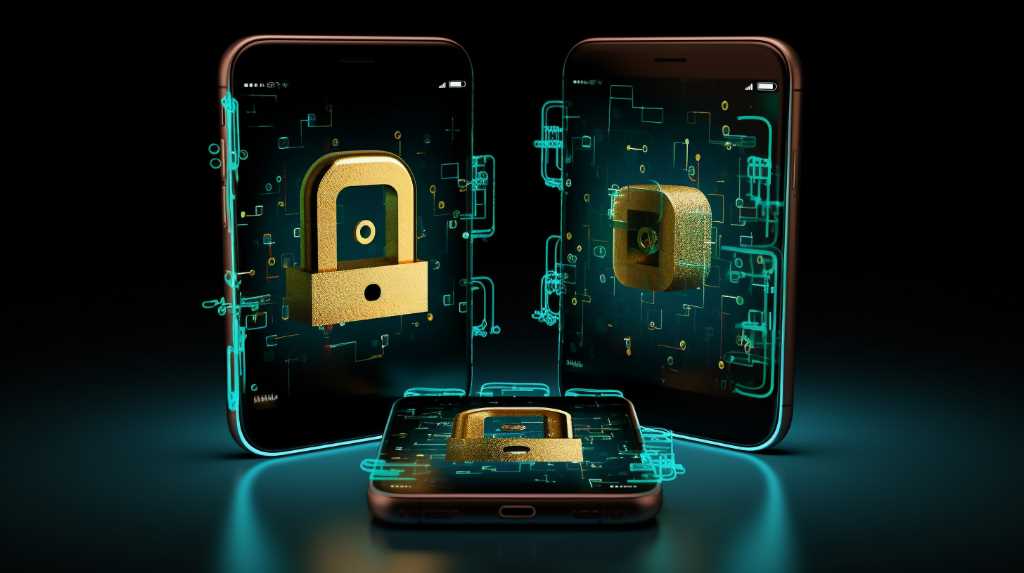 To ensure maximum security, you should enable end-to-end encryption in your messaging apps. End-to-end encryption is a powerful security feature that protects your messages from being accessed by anyone other than the intended recipient. When you enable end-to-end encryption, your messages are encrypted on your device and can only be decrypted by the recipient's device, ensuring that no one in between can intercept or read your messages.
Setting up end-to-end encryption in your messaging apps is relatively straightforward. Most popular messaging apps, such as WhatsApp and Signal, already have this feature built-in. All you need to do is make sure that the encryption settings are enabled. In WhatsApp, for example, you can enable end-to-end encryption by going to the settings menu, selecting 'Account,' then 'Privacy,' and finally, toggling on the 'End-to-End Encryption' option.
It is important to note that end-to-end encryption only works when both the sender and the recipient have it enabled. So, make sure that the people you're communicating with also have end-to-end encryption enabled in their messaging apps.
To ensure maximum security, you should enable end-to-end encryption in your messaging apps. End-to-end encryption is a powerful security feature that protects your messages from being accessed by anyone other than the intended recipient. When you enable end-to-end encryption, your messages are encrypted on your device and can only be decrypted by the recipient's device, ensuring that no one in between can intercept or read your messages.
Setting up end-to-end encryption in your messaging apps is relatively straightforward. Most popular messaging apps, such as WhatsApp and Signal, already have this feature built-in. All you need to do is make sure that the encryption settings are enabled. In WhatsApp, for example, you can enable end-to-end encryption by going to the settings menu, selecting 'Account,' then 'Privacy,' and finally, toggling on the 'End-to-End Encryption' option.
It is important to note that end-to-end encryption only works when both the sender and the recipient have it enabled. So, make sure that the people you're communicating with also have end-to-end encryption enabled in their messaging apps.
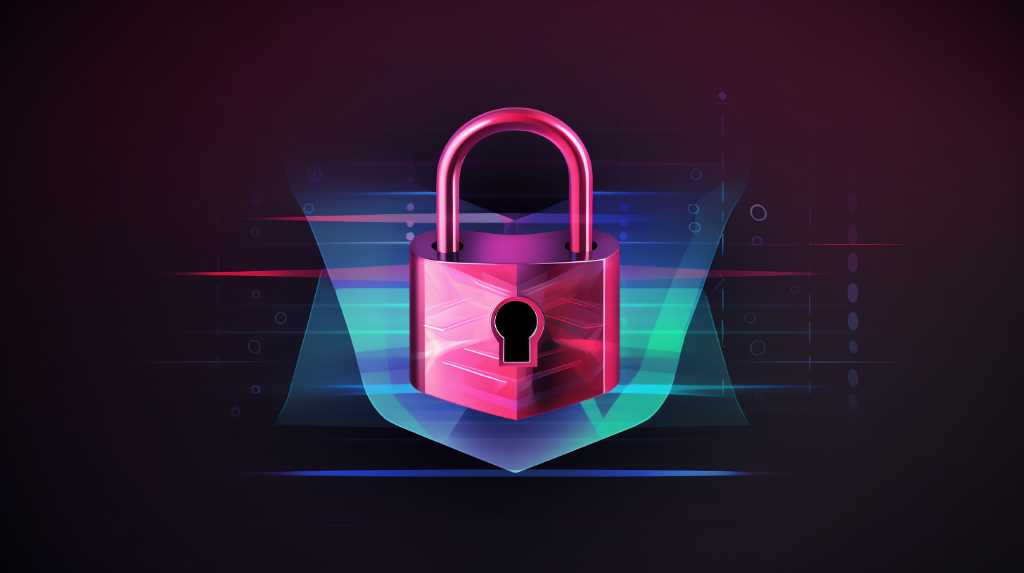 To ensure the confidentiality of your emails, you can use encryption techniques and secure your communication. Encrypting your emails is crucial in protecting sensitive information from being intercepted or accessed by unauthorized individuals. There are several methods you can employ to encrypt and secure your emails.
One commonly used method is using a Public Key Infrastructure (PKI). With PKI, you generate a pair of cryptographic keys – a public key and a private key. The public key is shared with others, allowing them to encrypt messages sent to you. Only you possess the private key, which is used to decrypt the encrypted messages. This ensures that only the intended recipient can read the contents of the email.
Another method is to use secure email services that offer built-in encryption features. These services use protocols like Pretty Good Privacy (PGP) or Secure/Multipurpose Internet Mail Extensions (S/MIME) to encrypt and decrypt emails. By using these services, your communications remain secure, even if the email travels through untrusted networks.
It's also important to be cautious when sending sensitive information via email. Avoid including sensitive data in the subject line or using unsecured Wi-Fi networks to access your email account. Additionally, ensure that you have strong and unique passwords for your email account to prevent unauthorized access.
To ensure the confidentiality of your emails, you can use encryption techniques and secure your communication. Encrypting your emails is crucial in protecting sensitive information from being intercepted or accessed by unauthorized individuals. There are several methods you can employ to encrypt and secure your emails.
One commonly used method is using a Public Key Infrastructure (PKI). With PKI, you generate a pair of cryptographic keys – a public key and a private key. The public key is shared with others, allowing them to encrypt messages sent to you. Only you possess the private key, which is used to decrypt the encrypted messages. This ensures that only the intended recipient can read the contents of the email.
Another method is to use secure email services that offer built-in encryption features. These services use protocols like Pretty Good Privacy (PGP) or Secure/Multipurpose Internet Mail Extensions (S/MIME) to encrypt and decrypt emails. By using these services, your communications remain secure, even if the email travels through untrusted networks.
It's also important to be cautious when sending sensitive information via email. Avoid including sensitive data in the subject line or using unsecured Wi-Fi networks to access your email account. Additionally, ensure that you have strong and unique passwords for your email account to prevent unauthorized access.
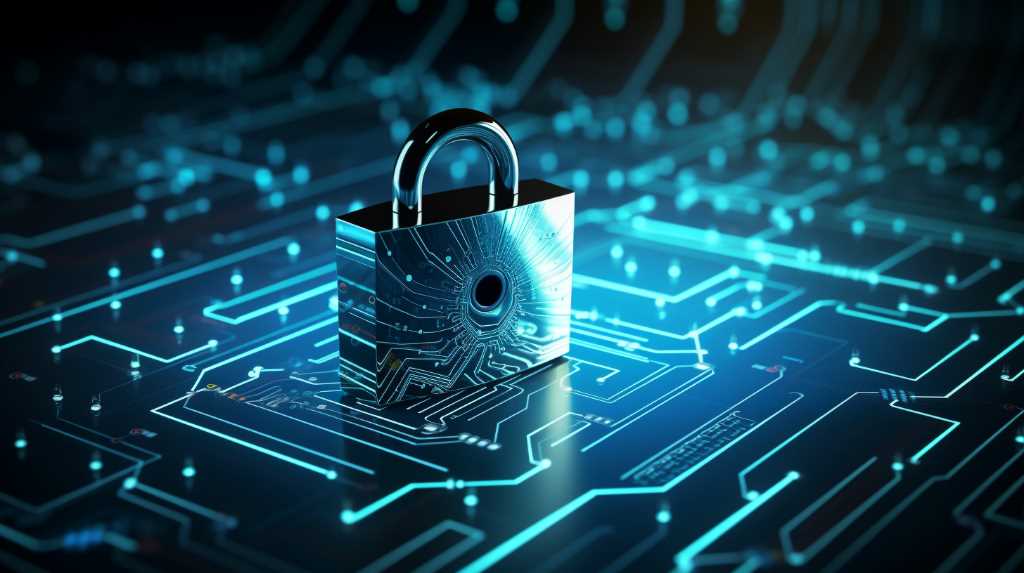 Securely encrypting your files is essential to protect sensitive information and ensure the confidentiality of your data. Encrypting your files adds an extra layer of security, making it harder for unauthorized individuals to access your data.
To ensure the best practices for file encryption, here are some important steps to follow. First, choose a strong encryption algorithm. There are various encryption algorithms available, such as AES (Advanced Encryption Standard), that provide robust security. Make sure to select an algorithm that's widely recognized and considered secure by experts.
Next, use a strong and unique encryption key. The encryption key is what converts your data into an unreadable format. It's crucial to use a long, complex, and unique key that isn't easily guessable. Avoid using common phrases or easily guessable information as your encryption key.
Regularly update your encryption software. Encryption tools and techniques evolve over time, and new vulnerabilities can be discovered. By keeping your encryption software up to date, you can ensure that you're protected against the latest threats.
Finally, securely store your encryption key. Your encrypted files are useless without the key, so it's crucial to store it securely. Consider using a secure password manager or hardware token to store your encryption keys.
Securely encrypting your files is essential to protect sensitive information and ensure the confidentiality of your data. Encrypting your files adds an extra layer of security, making it harder for unauthorized individuals to access your data.
To ensure the best practices for file encryption, here are some important steps to follow. First, choose a strong encryption algorithm. There are various encryption algorithms available, such as AES (Advanced Encryption Standard), that provide robust security. Make sure to select an algorithm that's widely recognized and considered secure by experts.
Next, use a strong and unique encryption key. The encryption key is what converts your data into an unreadable format. It's crucial to use a long, complex, and unique key that isn't easily guessable. Avoid using common phrases or easily guessable information as your encryption key.
Regularly update your encryption software. Encryption tools and techniques evolve over time, and new vulnerabilities can be discovered. By keeping your encryption software up to date, you can ensure that you're protected against the latest threats.
Finally, securely store your encryption key. Your encrypted files are useless without the key, so it's crucial to store it securely. Consider using a secure password manager or hardware token to store your encryption keys.
 When selecting an encryption tool for file protection, consider the features and capabilities that best suit your specific needs. With the increasing importance of safeguarding sensitive information, it's crucial to choose an encryption tool that provides robust security measures.
One such tool is VeraCrypt, which offers strong encryption algorithms and the ability to create encrypted containers or encrypt entire disk partitions. If you require a user-friendly option, AxCrypt might be the right choice for you. It allows for easy encryption and decryption of files with just a few clicks.
On the other hand, if you prioritize cloud storage security, Boxcryptor is a great option as it seamlessly integrates with popular cloud storage providers and encrypts files before they're uploaded. For those who work with sensitive documents on a daily basis, Adobe Acrobat Pro DC provides advanced encryption features and the ability to set permissions for accessing and editing files.
Lastly, if you're looking for an open-source solution, GnuPG is a reliable and widely-used encryption tool that can encrypt files as well as verify digital signatures. Ultimately, the best encryption tool for file protection will depend on your specific requirements and preferences.
When selecting an encryption tool for file protection, consider the features and capabilities that best suit your specific needs. With the increasing importance of safeguarding sensitive information, it's crucial to choose an encryption tool that provides robust security measures.
One such tool is VeraCrypt, which offers strong encryption algorithms and the ability to create encrypted containers or encrypt entire disk partitions. If you require a user-friendly option, AxCrypt might be the right choice for you. It allows for easy encryption and decryption of files with just a few clicks.
On the other hand, if you prioritize cloud storage security, Boxcryptor is a great option as it seamlessly integrates with popular cloud storage providers and encrypts files before they're uploaded. For those who work with sensitive documents on a daily basis, Adobe Acrobat Pro DC provides advanced encryption features and the ability to set permissions for accessing and editing files.
Lastly, if you're looking for an open-source solution, GnuPG is a reliable and widely-used encryption tool that can encrypt files as well as verify digital signatures. Ultimately, the best encryption tool for file protection will depend on your specific requirements and preferences.
 You should regularly use encryption to protect your digital privacy. In today's digital age, where our personal information is constantly being collected and shared, it's crucial to take steps to safeguard our data. Encryption provides a powerful tool to ensure your privacy and keep your sensitive information secure.
By encrypting your data, you're essentially converting it into a form that's unreadable without the appropriate decryption key. This means that even if your data is intercepted or accessed by unauthorized individuals, it will be useless to them without the key. Encryption is used in various aspects of our daily lives, from secure messaging apps to online banking transactions.
One popular encryption method is end-to-end encryption, which ensures that only the intended recipient can access the encrypted data. This is particularly important for communication platforms, as it prevents anyone else, including service providers and hackers, from eavesdropping on your conversations.
In addition to protecting your communications, encryption can also be used to secure your files and documents. By encrypting sensitive files, you can prevent unauthorized access and ensure that your information remains confidential.
You should regularly use encryption to protect your digital privacy. In today's digital age, where our personal information is constantly being collected and shared, it's crucial to take steps to safeguard our data. Encryption provides a powerful tool to ensure your privacy and keep your sensitive information secure.
By encrypting your data, you're essentially converting it into a form that's unreadable without the appropriate decryption key. This means that even if your data is intercepted or accessed by unauthorized individuals, it will be useless to them without the key. Encryption is used in various aspects of our daily lives, from secure messaging apps to online banking transactions.
One popular encryption method is end-to-end encryption, which ensures that only the intended recipient can access the encrypted data. This is particularly important for communication platforms, as it prevents anyone else, including service providers and hackers, from eavesdropping on your conversations.
In addition to protecting your communications, encryption can also be used to secure your files and documents. By encrypting sensitive files, you can prevent unauthorized access and ensure that your information remains confidential.
Key Takeaways
- Encryption is the process of converting information into a code or cipher, making it unreadable to unauthorized individuals.
- End-to-end encryption in messaging apps ensures that only the intended recipient can access encrypted messages.
- Email encryption adds an extra layer of security to communication, protecting the content of emails from unauthorized access.
- File encryption tools like VeraCrypt, AxCrypt, Boxcryptor, and Adobe Acrobat Pro DC offer strong encryption algorithms and secure file protection.
Understanding Encryption Basics
 To fully grasp encryption basics, you need to understand how encryption works and why it's important in safeguarding your data. Encryption is the process of converting information into a code or cipher, making it unreadable to anyone who doesn't have the decryption key. When you encrypt your data, it becomes secure and protected from unauthorized access.
Encryption works by using complex mathematical algorithms to scramble your data. The encrypted data is then stored or transmitted, and can only be decrypted by someone who's the correct key to unlock it. This ensures that even if your encrypted data is intercepted or stolen, it can't be understood or accessed without the encryption key.
Encryption is important because it helps protect your sensitive information from being accessed by unauthorized individuals. In today's digital world, where data breaches and cyber attacks are becoming increasingly common, encryption is crucial to safeguard your personal and financial information. By encrypting your data, you're adding an extra layer of security, making it much more difficult for hackers or malicious individuals to gain access to your sensitive data.
Understanding encryption basics is the first step towards protecting your data and maintaining your privacy. By implementing encryption tools and techniques, you can ensure that your information remains confidential and secure.
To fully grasp encryption basics, you need to understand how encryption works and why it's important in safeguarding your data. Encryption is the process of converting information into a code or cipher, making it unreadable to anyone who doesn't have the decryption key. When you encrypt your data, it becomes secure and protected from unauthorized access.
Encryption works by using complex mathematical algorithms to scramble your data. The encrypted data is then stored or transmitted, and can only be decrypted by someone who's the correct key to unlock it. This ensures that even if your encrypted data is intercepted or stolen, it can't be understood or accessed without the encryption key.
Encryption is important because it helps protect your sensitive information from being accessed by unauthorized individuals. In today's digital world, where data breaches and cyber attacks are becoming increasingly common, encryption is crucial to safeguard your personal and financial information. By encrypting your data, you're adding an extra layer of security, making it much more difficult for hackers or malicious individuals to gain access to your sensitive data.
Understanding encryption basics is the first step towards protecting your data and maintaining your privacy. By implementing encryption tools and techniques, you can ensure that your information remains confidential and secure.
Importance of Encryption for Online Privacy
 By using encryption techniques, you can significantly enhance your online privacy and protect your sensitive information from unauthorized access. In today's digital age, where cyber threats are becoming increasingly sophisticated, it's crucial to prioritize the security of your personal data. Encryption plays a vital role in safeguarding your information from prying eyes.
When you transmit data over the internet, it can potentially be intercepted by hackers or malicious entities. Encryption works by scrambling your data into an unreadable format, making it virtually impossible for anyone without the decryption key to decipher the information. This ensures that even if your data is intercepted, it remains secure and inaccessible to unauthorized individuals.
One of the primary benefits of encryption for online privacy is that it provides end-to-end protection. This means that your data remains encrypted throughout its entire journey, from your device to the intended recipient. It prevents any intermediaries, such as internet service providers or network administrators, from accessing or tampering with your data.
Encryption also helps protect your online communication and transactions. It ensures that sensitive information, such as passwords, credit card details, and personal messages, remain confidential. Without encryption, this information would be vulnerable to interception and misuse.
By using encryption techniques, you can significantly enhance your online privacy and protect your sensitive information from unauthorized access. In today's digital age, where cyber threats are becoming increasingly sophisticated, it's crucial to prioritize the security of your personal data. Encryption plays a vital role in safeguarding your information from prying eyes.
When you transmit data over the internet, it can potentially be intercepted by hackers or malicious entities. Encryption works by scrambling your data into an unreadable format, making it virtually impossible for anyone without the decryption key to decipher the information. This ensures that even if your data is intercepted, it remains secure and inaccessible to unauthorized individuals.
One of the primary benefits of encryption for online privacy is that it provides end-to-end protection. This means that your data remains encrypted throughout its entire journey, from your device to the intended recipient. It prevents any intermediaries, such as internet service providers or network administrators, from accessing or tampering with your data.
Encryption also helps protect your online communication and transactions. It ensures that sensitive information, such as passwords, credit card details, and personal messages, remain confidential. Without encryption, this information would be vulnerable to interception and misuse.
Choosing the Right Secure Messaging App
 When it comes to choosing the right secure messaging app, you need to consider the balance between privacy and convenience. It's important to find an app that prioritizes your privacy without sacrificing usability. Additionally, cross-platform compatibility is crucial to ensure that you can communicate securely with others regardless of the device or operating system they use.
When it comes to choosing the right secure messaging app, you need to consider the balance between privacy and convenience. It's important to find an app that prioritizes your privacy without sacrificing usability. Additionally, cross-platform compatibility is crucial to ensure that you can communicate securely with others regardless of the device or operating system they use.
Privacy Vs. Convenience
Choosing the right secure messaging app requires weighing the trade-off between privacy and convenience. When it comes to privacy, you want a messaging app that ensures your conversations and data are protected from prying eyes. This means the app should use end-to-end encryption, where only you and the recipient can access the messages. On the other hand, convenience is also important. You want a messaging app that's user-friendly and easy to navigate, with features that make communication seamless. It should allow you to send messages, make voice and video calls, and share files effortlessly. However, it's essential to strike a balance between the two. While some apps may prioritize convenience over privacy, others excel in both areas. It's crucial to research and choose an app that aligns with your priorities and values.Cross-Platform Compatibility
Make sure to consider cross-platform compatibility when selecting the right secure messaging app for your needs. With the increasing number of devices and operating systems available, it's essential to choose an app that works seamlessly across different platforms. Whether you're using a smartphone, tablet, or computer, you want to be able to communicate securely with others regardless of their device. A messaging app that supports cross-platform compatibility ensures that you can easily connect with friends, family, or colleagues, regardless of the devices they use. It eliminates the hassle of having to switch between different apps or platforms just to have a secure conversation.Setting Up End-to-End Encryption in Messaging Apps
 To ensure maximum security, you should enable end-to-end encryption in your messaging apps. End-to-end encryption is a powerful security feature that protects your messages from being accessed by anyone other than the intended recipient. When you enable end-to-end encryption, your messages are encrypted on your device and can only be decrypted by the recipient's device, ensuring that no one in between can intercept or read your messages.
Setting up end-to-end encryption in your messaging apps is relatively straightforward. Most popular messaging apps, such as WhatsApp and Signal, already have this feature built-in. All you need to do is make sure that the encryption settings are enabled. In WhatsApp, for example, you can enable end-to-end encryption by going to the settings menu, selecting 'Account,' then 'Privacy,' and finally, toggling on the 'End-to-End Encryption' option.
It is important to note that end-to-end encryption only works when both the sender and the recipient have it enabled. So, make sure that the people you're communicating with also have end-to-end encryption enabled in their messaging apps.
To ensure maximum security, you should enable end-to-end encryption in your messaging apps. End-to-end encryption is a powerful security feature that protects your messages from being accessed by anyone other than the intended recipient. When you enable end-to-end encryption, your messages are encrypted on your device and can only be decrypted by the recipient's device, ensuring that no one in between can intercept or read your messages.
Setting up end-to-end encryption in your messaging apps is relatively straightforward. Most popular messaging apps, such as WhatsApp and Signal, already have this feature built-in. All you need to do is make sure that the encryption settings are enabled. In WhatsApp, for example, you can enable end-to-end encryption by going to the settings menu, selecting 'Account,' then 'Privacy,' and finally, toggling on the 'End-to-End Encryption' option.
It is important to note that end-to-end encryption only works when both the sender and the recipient have it enabled. So, make sure that the people you're communicating with also have end-to-end encryption enabled in their messaging apps.
Encrypting and Securing Your Emails
 To ensure the confidentiality of your emails, you can use encryption techniques and secure your communication. Encrypting your emails is crucial in protecting sensitive information from being intercepted or accessed by unauthorized individuals. There are several methods you can employ to encrypt and secure your emails.
One commonly used method is using a Public Key Infrastructure (PKI). With PKI, you generate a pair of cryptographic keys – a public key and a private key. The public key is shared with others, allowing them to encrypt messages sent to you. Only you possess the private key, which is used to decrypt the encrypted messages. This ensures that only the intended recipient can read the contents of the email.
Another method is to use secure email services that offer built-in encryption features. These services use protocols like Pretty Good Privacy (PGP) or Secure/Multipurpose Internet Mail Extensions (S/MIME) to encrypt and decrypt emails. By using these services, your communications remain secure, even if the email travels through untrusted networks.
It's also important to be cautious when sending sensitive information via email. Avoid including sensitive data in the subject line or using unsecured Wi-Fi networks to access your email account. Additionally, ensure that you have strong and unique passwords for your email account to prevent unauthorized access.
To ensure the confidentiality of your emails, you can use encryption techniques and secure your communication. Encrypting your emails is crucial in protecting sensitive information from being intercepted or accessed by unauthorized individuals. There are several methods you can employ to encrypt and secure your emails.
One commonly used method is using a Public Key Infrastructure (PKI). With PKI, you generate a pair of cryptographic keys – a public key and a private key. The public key is shared with others, allowing them to encrypt messages sent to you. Only you possess the private key, which is used to decrypt the encrypted messages. This ensures that only the intended recipient can read the contents of the email.
Another method is to use secure email services that offer built-in encryption features. These services use protocols like Pretty Good Privacy (PGP) or Secure/Multipurpose Internet Mail Extensions (S/MIME) to encrypt and decrypt emails. By using these services, your communications remain secure, even if the email travels through untrusted networks.
It's also important to be cautious when sending sensitive information via email. Avoid including sensitive data in the subject line or using unsecured Wi-Fi networks to access your email account. Additionally, ensure that you have strong and unique passwords for your email account to prevent unauthorized access.
Best Practices for File Encryption
 Securely encrypting your files is essential to protect sensitive information and ensure the confidentiality of your data. Encrypting your files adds an extra layer of security, making it harder for unauthorized individuals to access your data.
To ensure the best practices for file encryption, here are some important steps to follow. First, choose a strong encryption algorithm. There are various encryption algorithms available, such as AES (Advanced Encryption Standard), that provide robust security. Make sure to select an algorithm that's widely recognized and considered secure by experts.
Next, use a strong and unique encryption key. The encryption key is what converts your data into an unreadable format. It's crucial to use a long, complex, and unique key that isn't easily guessable. Avoid using common phrases or easily guessable information as your encryption key.
Regularly update your encryption software. Encryption tools and techniques evolve over time, and new vulnerabilities can be discovered. By keeping your encryption software up to date, you can ensure that you're protected against the latest threats.
Finally, securely store your encryption key. Your encrypted files are useless without the key, so it's crucial to store it securely. Consider using a secure password manager or hardware token to store your encryption keys.
Securely encrypting your files is essential to protect sensitive information and ensure the confidentiality of your data. Encrypting your files adds an extra layer of security, making it harder for unauthorized individuals to access your data.
To ensure the best practices for file encryption, here are some important steps to follow. First, choose a strong encryption algorithm. There are various encryption algorithms available, such as AES (Advanced Encryption Standard), that provide robust security. Make sure to select an algorithm that's widely recognized and considered secure by experts.
Next, use a strong and unique encryption key. The encryption key is what converts your data into an unreadable format. It's crucial to use a long, complex, and unique key that isn't easily guessable. Avoid using common phrases or easily guessable information as your encryption key.
Regularly update your encryption software. Encryption tools and techniques evolve over time, and new vulnerabilities can be discovered. By keeping your encryption software up to date, you can ensure that you're protected against the latest threats.
Finally, securely store your encryption key. Your encrypted files are useless without the key, so it's crucial to store it securely. Consider using a secure password manager or hardware token to store your encryption keys.
Exploring Encryption Tools for File Protection
 When selecting an encryption tool for file protection, consider the features and capabilities that best suit your specific needs. With the increasing importance of safeguarding sensitive information, it's crucial to choose an encryption tool that provides robust security measures.
One such tool is VeraCrypt, which offers strong encryption algorithms and the ability to create encrypted containers or encrypt entire disk partitions. If you require a user-friendly option, AxCrypt might be the right choice for you. It allows for easy encryption and decryption of files with just a few clicks.
On the other hand, if you prioritize cloud storage security, Boxcryptor is a great option as it seamlessly integrates with popular cloud storage providers and encrypts files before they're uploaded. For those who work with sensitive documents on a daily basis, Adobe Acrobat Pro DC provides advanced encryption features and the ability to set permissions for accessing and editing files.
Lastly, if you're looking for an open-source solution, GnuPG is a reliable and widely-used encryption tool that can encrypt files as well as verify digital signatures. Ultimately, the best encryption tool for file protection will depend on your specific requirements and preferences.
When selecting an encryption tool for file protection, consider the features and capabilities that best suit your specific needs. With the increasing importance of safeguarding sensitive information, it's crucial to choose an encryption tool that provides robust security measures.
One such tool is VeraCrypt, which offers strong encryption algorithms and the ability to create encrypted containers or encrypt entire disk partitions. If you require a user-friendly option, AxCrypt might be the right choice for you. It allows for easy encryption and decryption of files with just a few clicks.
On the other hand, if you prioritize cloud storage security, Boxcryptor is a great option as it seamlessly integrates with popular cloud storage providers and encrypts files before they're uploaded. For those who work with sensitive documents on a daily basis, Adobe Acrobat Pro DC provides advanced encryption features and the ability to set permissions for accessing and editing files.
Lastly, if you're looking for an open-source solution, GnuPG is a reliable and widely-used encryption tool that can encrypt files as well as verify digital signatures. Ultimately, the best encryption tool for file protection will depend on your specific requirements and preferences.
Protecting Your Digital Privacy With Encryption
 You should regularly use encryption to protect your digital privacy. In today's digital age, where our personal information is constantly being collected and shared, it's crucial to take steps to safeguard our data. Encryption provides a powerful tool to ensure your privacy and keep your sensitive information secure.
By encrypting your data, you're essentially converting it into a form that's unreadable without the appropriate decryption key. This means that even if your data is intercepted or accessed by unauthorized individuals, it will be useless to them without the key. Encryption is used in various aspects of our daily lives, from secure messaging apps to online banking transactions.
One popular encryption method is end-to-end encryption, which ensures that only the intended recipient can access the encrypted data. This is particularly important for communication platforms, as it prevents anyone else, including service providers and hackers, from eavesdropping on your conversations.
In addition to protecting your communications, encryption can also be used to secure your files and documents. By encrypting sensitive files, you can prevent unauthorized access and ensure that your information remains confidential.
You should regularly use encryption to protect your digital privacy. In today's digital age, where our personal information is constantly being collected and shared, it's crucial to take steps to safeguard our data. Encryption provides a powerful tool to ensure your privacy and keep your sensitive information secure.
By encrypting your data, you're essentially converting it into a form that's unreadable without the appropriate decryption key. This means that even if your data is intercepted or accessed by unauthorized individuals, it will be useless to them without the key. Encryption is used in various aspects of our daily lives, from secure messaging apps to online banking transactions.
One popular encryption method is end-to-end encryption, which ensures that only the intended recipient can access the encrypted data. This is particularly important for communication platforms, as it prevents anyone else, including service providers and hackers, from eavesdropping on your conversations.
In addition to protecting your communications, encryption can also be used to secure your files and documents. By encrypting sensitive files, you can prevent unauthorized access and ensure that your information remains confidential.

